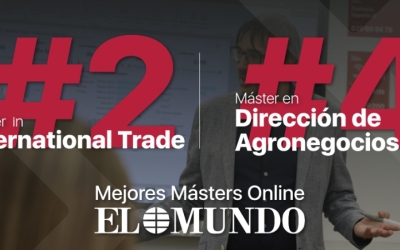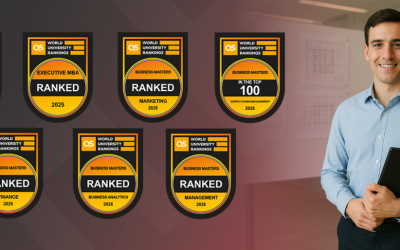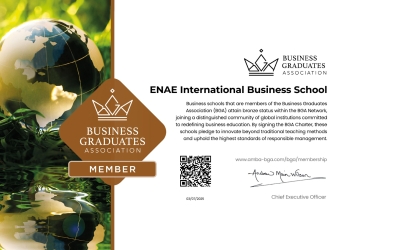 Noticias
NoticiasBehind Sons of a Bit: An Interview with founder Alberto Saldaña
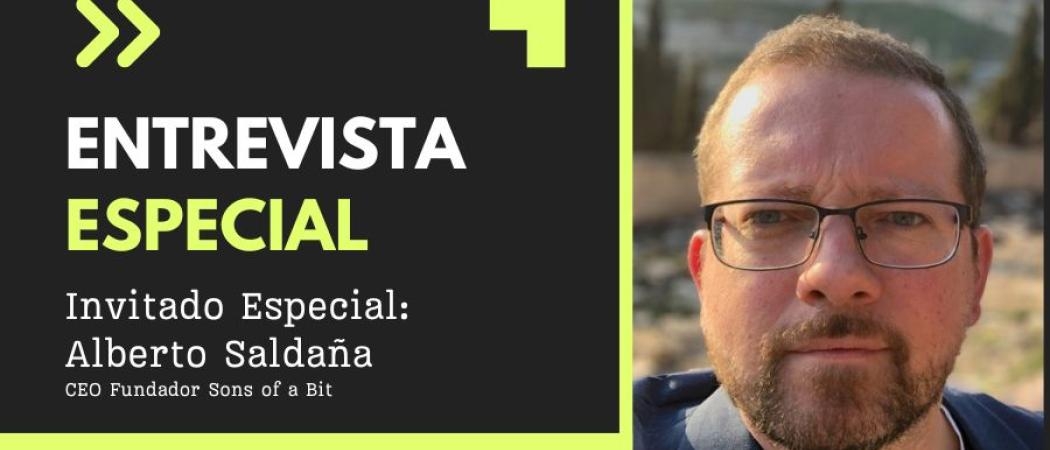
First of all, congratulations on the Auggie 2024 award for the best augmented reality videogame. What has this recognition meant for Sons of a Bit and, especially, for you?
This recognition highlights the enormous work of our entire team and is undoubtedly a validation and an important boost in terms of visibility, attracting investment and securing important partnerships.
It was already an important milestone for us to be nominated among the 10 best immersive games in the world alongside giants such as the creators of Pokémon GO, Niantic, which is one of our benchmarks.
I sometimes compare Kluest to building a cathedral. Stone by stone, we polish and validate our hypotheses. Winning the award, as I said, I think it validates our approach, which is extremely differentiated and innovative, and although it is also risky, it has the potential to bring Augmented Reality and spatial content to the daily lives of millions of people, so that they can use this technology in a multitude of different areas.
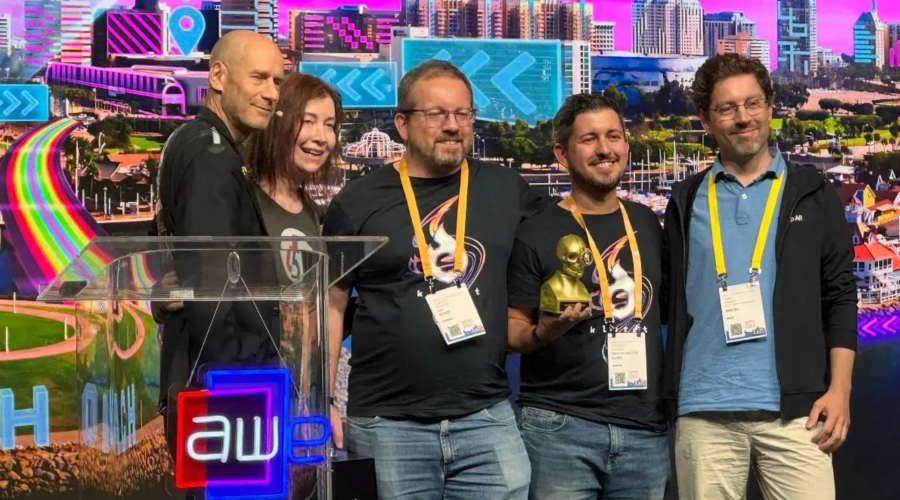
It must be exciting to see how a project like yours, which was born from a two-brother venture and now has a great multidisciplinary team, grows. What was your goal when Sons of a Bit was founded?
Yes, it was very exciting, although the grey hairs come out faster (laughs). As I said before, our vision can't materialise overnight, and we have to build that ‘cathedral’ step by step. Which is also positive, because you can validate, or sometimes discard, each step, shaping the product and adapting it to real needs. In projects of this size and with a high innovation component, I don't think it helps to run too fast.
And to answer your question, apart from being able to make a living from making videogames, which is what we are passionate about, our goal has always been to offer different products that you can enjoy in the company of your friends and loved ones and that encourage you to express yourself creatively. In a way, to involve the players in the creation of the content of the game itself. In fact, this is Kluest's main premise: to fill the world with user-generated space content.
After this important achievement, what is the next goal you have in mind?
Well, there are always many challenges ahead, from closing the next round of investment as fast as possible to keep building this great team and adding new roles and departments such as marketing or business development. But without a doubt, on the horizon, the biggest challenge of all is the launch in the United States. It is the most important market in our internationalisation plan but we also know that it is one of the most complicated.
Tell us more about the videogame, how did it come about and what did you want to achieve?
Kluest is something like ‘the YouTube of Augmented Reality’, a mobile platform for user-generated spatial content. When you say ‘Augmented Reality’, most people think of Pokémon GO, which many years later is still the killer app for this technology.
Well indeed, at Kluest we have many location-based games, which is what this type of game is called, games very much along the lines of Pokémon GO. With your avatar on a map and different geolocated elements around you, characters, enemies, etc. with which you can interact in Augmented Reality.
But we also have narrative games, tourist experiences, art galleries, sports challenges, educational experiences, etc. We currently have more than 2,000 experiences of all kinds created by our community and published on the platform.
Just like on YouTube, and unlike Pokémon GO, on Kluest you can find varied content aligned with your interests... and you can create it yourself!
Without the need for technical knowledge or artistic skills, and from within the app itself, you can create this type of content in a super visual and accessible way thanks to AI tools and visual editors for avatars, environments, objects and behaviours that are integrated into Kluest.
We believe that spatial content is the future of the Internet. It is going to revolutionise the way we interact with digital content and become the next user interface for everything, including AI. This is part of what is known as the post-screen era.
However, for a variety of reasons and despite the fact that the technology is already there, this type of content has not yet made the leap and is not yet being consumed on a mass scale. One of these reasons is that the adoption of Virtual and Mixed Reality glasses, although growing in recent years, is still low. Moreover, they are not yet devices that you can wear all day and carry with you. This is why we use the phrase ‘Mobile First, Glasses Later’.
Mobile devices are capable of displaying this type of content in a spectacular way, it's something you carry with you all the time, and basically, it's where we think you need to be today. Without needing a Meta Quest or an Apple Vision Pro, you can, for example, put a sculpture from the National Museum of Porto in your living room or fight a giant monster in the park while walking the dog.
Another important reason is that there is no aggregator, no ‘YouTube’ of space content, or rather there wasn't! Because that's where we are.
Finally, we would like to focus on your education. A few years ago you did the Global Executive MBA at ENAE, was it decisive for you to take the step to become an entrepreneur?
If my ‘past self’ were to ask me, I would tell her that I did it without hesitation. It was certainly a great learning experience and I met many incredible people who have also given me a lot and from whom I have learned and continue to do so today.
To answer your question, in our case, Edu and I were both entrepreneurs long before studying the MBA, but there is something that is very clear to me now, and that is that making videogames is not the same as having a videogame company, and even less so with strong growth projections. That growth process can be very complicated, and I wanted to prepare for it before it happened. And as I said, there are many things that I ‘took away’ from there and that we apply in our day to day life.
Thank you very much for your time Alberto, we will stay tuned so we don't miss anything about Sons of a Bit. Please, in closing, what message would you send to someone who has doubts about their project because of the fear of entrepreneurship?
Thank you very much to you. Let's see, 5 or 6 years ago when I was asked this kind of questions I encouraged everyone to start a business, but now I am very clear that it is not something that can be recommended to everyone.
Don't get me wrong, building something and getting a group of people like ours together to do the crazy things we do is wonderful, but entrepreneurship can also be very hard.
It is true that it will depend a lot on the type of project and the entrepreneur's background or capacity to adapt, but to a greater or lesser extent you have to have a tolerance for risk, uncertainty and, above all, failure. It is almost impossible for everything to go smoothly and work out the first time, and I think it is better to assume this from the beginning as part of the process. In fact, there will usually be a bit of a mixed bag, but when things don't work out, I think the best thing to do is simply to take note and get to work so that the next time it works out better.
And here I think it helps a lot if you have a passion for what you do. Because when you are really passionate about something, learning is a real joy. On the other hand, when you don't like something, learning is almost a punishment. And this journey is a continuous learning process, so you better like it (laughs).
I think that entrepreneurship is a structural decision in your life, in my personal opinion, almost as structural as deciding whether to have children or not. If ‘the pieces of the puzzle’ end up fitting together, it is something that will influence the rest of your life, that will require a lot of dedication, and that will bring you many things. Many joys but also headaches.
The partners and the team you surround yourself with also help a lot. The truth is that Edu and I complement each other very well. We share the vision 100%, but one is the super-optimistic one and the other always plays the devil's advocate, and this makes the internal debates we have much richer.
But well, I hope I'm not discouraging anyone, because maybe the speech sounds very negative, my intention was the opposite! (laughs) I really think that having this clear and assuming from the start that there will most likely be setbacks, is more realistic and a better approach than thinking that everything will go exactly as planned and the first setback will catch you by surprise.
I'm going on too long, but I'll end now, I wanted to put a little bit of emphasis on that last sentence, because planning and understanding the market and your business as well as possible is very important, but also acting to get real inputs and data. Finding that middle ground between analysis and action is proving to be key for us and I wanted to share it in case it is useful for anyone.
